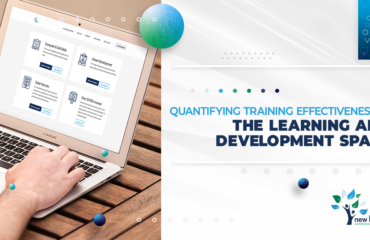
Text is the vanilla ice cream of eLearning content. Dull and bland. Actually, I am being too charitable. In the online learning world, it’s the unwanted house guest who never leaves. eLearning designers make all sorts of efforts to avoid using text. In a 21st century world, text is soooo 18th century. So why even bother with it?
But there are 3 reasons why text matters in online learning. First, most of the world’s accumulated and archived knowledge—its poetry, stories, history, and discoveries—are in text format. Next, in most of the online courses across the globe, text is the dominant form of knowledge transfer. We’re not getting away from text any time soon, but we do have a problem with text, and particularly text on screens. This article argues that yes, we certainly must design for the online medium—knowledge, and experiences that capitalize on the visual and interactive nature of online learning. But part of that design must include text. We need to both incorporate and modify text for online consumption. At the same time, we must encourage and support our online learners to be able to critically consume and analyze text-based information that is complex and even (horrors!) long.
Reading From Screens: Lifting the Burden
First, we have to choose our knowledge formats carefully and use these formats for what they are good for—video for demonstration and text for descriptive information and for conceptual knowledge. But it goes beyond mere formats; we have to pay attention to good writing. Good writing attracts readers, so heeding the advice of one of the greats (Emily Dickinson)—we should polish our words until “they shine”.
Organised chaos
In an online environment, we often have to organize text differently for our learners. This is where research on eye-tracking, and available eye-tracking tools, are of great value as they can help online course designers understand which layouts and placement of text are best for reading online. Organizing text into bullet points, chunking text, highlighting important text with different colours and font styles (but not font size), and using headers, all help to make reading more accessible and serve as effective visual mnemonics (Viau, 1998; Lane, n.d. cited in Burns, 2011, p. 143).
Pretty Good Content
Research on cognitive theory shows that multimedia, that is images, audio, and multimediα may help all individuals, both students and teachers, learn more effectively and meaningfully. For example, narrating a reading via audio (something I often do for non-native English speakers) can assist readers greatly since it activates both aural and visual processing. This “dual coding” potentially results in greater long-term retention of information (Mayer, 2001).
We need to make the text more resonant for screen-based learning but we must not shy away from using text in online courses. Our online learners need to be able to read, comprehend, analyze and evaluate the utility, veracity, and accuracy of the text, in whatever content area they are studying online. As online instructors, we may find we have to help in this task.
Whether for compliance training, continuing education credit or a formal course of study, every profession wants and needs active learners, productive workers and moral, responsible citizens who are critical consumers of text-based information. Rather than eliminating text in our online courses and limiting access to rich and complex readings, we need to embrace text, design for it and help learners hone their online and offline reading skills.




